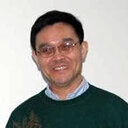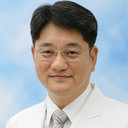Potent antiandrogen and androgen receptor activities of an Angelica gigas-containing herbal formulation: identification of decursin as a novel and active compound with implications for prevention and treatment of prostate cancer.
Nøgleord
Abstrakt
Androgen and androgen receptor (AR)-mediated signaling are crucial for the development of prostate cancer. Identification of novel and naturally occurring phytochemicals that target androgen and AR signaling from Oriental medicinal herbs holds exciting promises for the chemoprevention of this disease. In this article, we report the discovery of strong and long-lasting antiandrogen and AR activities of the ethanol extract of a herbal formula (termed KMKKT) containing Korean Angelica gigas Nakai (AGN) root and nine other Oriental herbs in the androgen-dependent LNCaP human prostate cancer cell model. The functional biomarkers evaluated included a suppression of the expression of prostate-specific antigen (PSA) mRNA and protein (IC50, approximately 7 microg/mL, 48-hour exposure) and an inhibition of androgen-induced cell proliferation through G1 arrest and of the ability of androgen to suppress neuroendocrine differentiation at exposure concentrations that did not cause apoptosis. Through activity-guided fractionation, we identified decursin from AGN as a novel antiandrogen and AR compound with an IC50 of approximately 0.4 microg/mL (1.3 micromol/L, 48-hour exposure) for suppressing PSA expression. Decursin also recapitulated the neuroendocrine differentiation induction and G1 arrest actions of the AGN and KMKKT extracts. Mechanistically, decursin in its neat form or as a component of AGN or KMKKT extracts inhibited androgen-stimulated AR translocation to the nucleus and down-regulated AR protein abundance without affecting the AR mRNA level. The novel antiandrogen and AR activities of decursin and decursin-containing herbal extracts have significant implications for the chemoprevention and treatment of prostate cancer and other androgen-dependent diseases.




